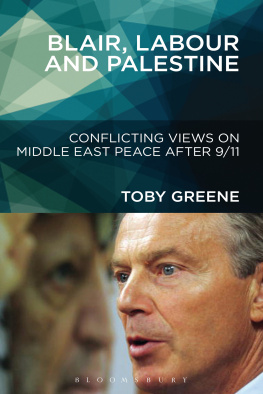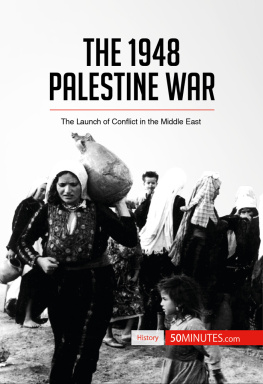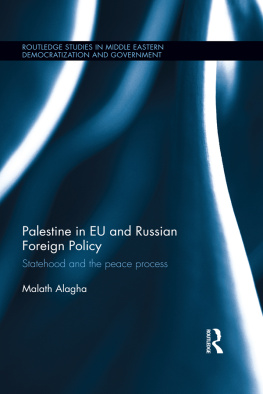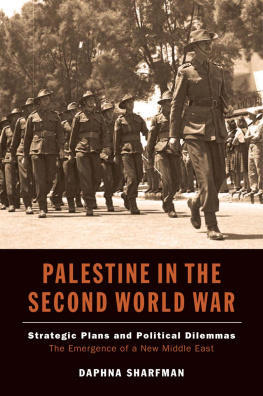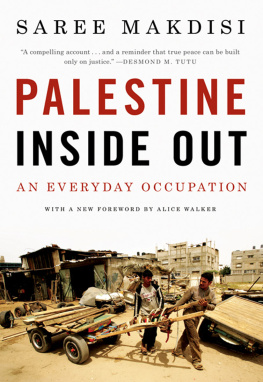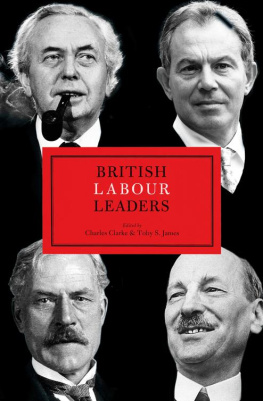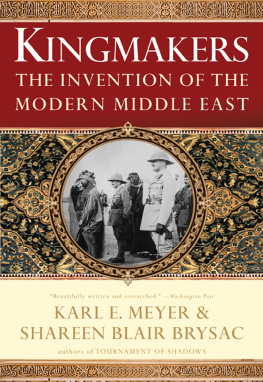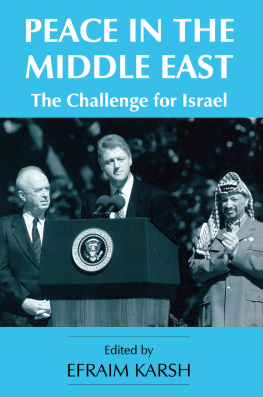I would like to thank Dr Neill Lochery, for giving me the opportunity to pursue the doctoral research on which this book is based, and for his guidance over the past few years. I also owe a debt of gratitude to the late Professor John Klier for providing timely advice and encouragement in the early stages of my research. My doctoral examiners, Professor Colin Shindler and Professor Rosemary Hollis, provided insightful comments, which helped considerably to strengthen the work, and I am grateful to Professor Shindler in particular for his advice on how to bring this work to publication. My thanks are due also to several anonymous reviewers for their helpful comments. I wish to thank the Hebrew and Jewish Studies Department at UCL for their support while I was affiliated with the department, including through the award of an Ian Karten Scholarship. Two employers, Labour Friends of Israel and the Britain Israel Communications and Research Centre, generously allowed me the flexibility to pursue my research while under their employment. I wish to thank all those who gave their time to be interviewed or to discuss these issues with me informally. I am also very thankful for the material and moral support provided by my parents, Diane and Philip Greene. My gratitude goes also to Marie-Claire Antoine, formerly of Continuum Books, who was extremely supportive in bringing this book to publication and all those at Bloomsbury who worked so professionally on its production. Above all, I wish to thank my wife, Talya, without whose constant encouragement, limitless patience and constructive editing, over many long years, I would never have completed this work.
This book is dedicated to Talya, Sivan and Lielle.
The policy choices from 9/11 onwards were and are immensely difficult. But eventually, they come down to this: do we confront this extremist ideology in order to change it, or do we manage it and hope in time it changes itself?
Tony Blair
This book is an attempt to explain British policy in the Israeli-Palestinian arena during the premiership of Tony Blair, particularly in the wake of the attacks by Al Qaeda on New York and Washington of 11 September 2001 (9/11). The events of 9/11 shocked the world with the scale of death and destruction. One of their consequences was to bring greater urgency to the debate within Europe and the United States over the role played by Western foreign policies in engendering hostile feeling towards the West among Muslims.
Western support for Israel and the fate of the Palestinians had long been cited by Islamists as a major grievance against the West, and the Israeli-Palestinian question had widespread prominence in the discourse of politicized Muslims. Al Qaeda, the orchestrators of 9/11, and their sympathizers, spoke of Israel as part of a Zionist-Crusader alliance against the Islamic world and referred to the violence in the Palestinian territories in justifying their actions.
He showed far greater sympathy for Israel, as a democratic state at threat from extremism, than many of his European counterparts, much to the dismay of many of his colleagues in his own party.
Though there has been an enormous amount written about Tony Blairs Middle East policy, the predominant focus has been his decision to commit British forces to the US-led invasion of Iraq. However, the Blair governments approach in the Israeli-Palestinian arena deserves its own account. Britain under Blair was no passive bystander with regard to this issue, nor did it hide in the chorus of international declarations and condemnations. Britain was unusually proactive, with Tony Blair more than once describing the conflict as the worlds most pressing challenge. Blair visited the region on numerous occasions and twice organized international conferences in London in an attempt to generate progress. Moreover, British policy was distinct, with clear differences of approach between Britain and other major European powers on the one hand, and the United States on the other.
This policy area also draws attention because of the extent to which it divided the ruling Labour Party, with many in the party particularly perturbed by an approach they perceived as too sympathetic to Israel. Blairs policy decisions in the Israeli-Palestinian arena were among his most controversial and politically damaging. His responses to the Second Intifada and the Second Lebanon War alienated his party more than any foreign policy issues aside from the Iraq War. Blairs refusal to call for an unconditional ceasefire during the Second Lebanon War in 2006 was one of the factors that triggered a backbench rebellion which forced him to announce the date of his departure from office. According to Blairs own account, his response to the Second Lebanon War, showed how The differences were not only between Blair and the grassroots. Differences of opinion between ministers were at times manifested as inconsistencies in position and policy from different representatives of the same government, both with regard to the Israeli-Palestinian arena and to the challenge of how to relate to Islamism and Islamists.
Given that the period in question is so recent, there is limited scholarly writing which focuses on it. Existing accounts, such as those of Rynhold and Spyer, Hollis, Miller, and Lochery all provide valuable insights, but only address the Blair governments policy in the Israeli-Palestinian arena as part of wider studies. Indeed Blairs manoeuvring on the international stage to try and maintain a transatlantic common ground was an important factor in determining his policy. The need to balance between the position of the United States and his own sceptical party rank and file was also significant. But the tendency to reduce Blairs position to one of balancing or bridging between the positions of others has left underexplored Blairs distinct personal view of the Israeli-Palestinian conflict and its relationship to the broader challenge of political Islam.
By contrast, the significant role played by Blairs personal world view has been highlighted in the far more extensive literature relating to the decision to participate in the Iraq War. There is a significant theme in the academic and wider literature, which presents Blairs decision to back the war in Iraq as being shaped predominantly by a concern to maintain the special relationship with the United States, and thereby the United Kingdoms influence with the worlds strongest power. Put simply, this is the image of Blair expressed in more popular discourse
This book uncovers Blairs unique position on the Israeli-Palestinian issue in the context of his overall world view and foreign policy, and in particular, his response to the challenges presented by 9/11 and his views on political Islam. According to the account presented here, the distinctive character of British policy in the Israeli-Palestinian arena after 9/11 was influenced considerably by Tony Blairs view of the Middle East. This view, which hardened over time in response to events, conflicted with the opinions of much of his party, based on a set of assumptions they did not share. Blairs evolving ideas about the nature of political Islam, rooted in a world view blending Christian Socialism, Atlanticism and neoliberalism, led Blair to regard the relationship between the Israeli-Palestinian issue and Islamic extremism very differently from many political colleagues, as well as officials within the Foreign Office and other branches of government. Even New Labour loyalists who broadly shared Blairs world view did not tend to share his consistent level of personal interest in the Israeli-Palestinian issue. On close examination, had any other individual in the Labour Party been leader, it is hard to imagine their approach would have been the same. In particular, Blairs fully fledged neoliberalism and Atlanticism, though shared among the New Labour loyalists, were not shared by many of the party rank and file, many of whom held some degree of attachment to post-colonialism and were far more suspicious of Americas global role.


